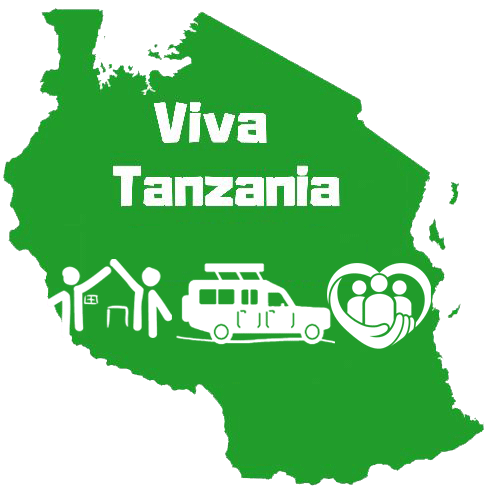Especially now that the dark and cold season begins in European countries, the seemingly endless landscapes under the warm equatorial sun seem even more tempting than usual. The first pictures of happy safari and relaxed beach holidaymakers reach the world and you wonder what’s stopping you from getting on a plane and travelling to Tanzania right away.
We understand why you doubt and it is absolutely right to inform yourself three times before you start your journey. To make the search for answers a little easier, here are our ‘Corona FAQs’:
Is it even possible to travel to Tanzania?
Most airlines are already offering flights from all over the world to Tanzanian airports several times a week again. In contrast to most other countries, no negative Covid-19 test is required when entering Tanzania and no quarantine is initiated. Only a fever is measured upon arrival and a mask is required until you leave the airport.
What effects does Corona have on everyday life?
Covid-19 no longer has any noticeable effects on everyday life in Tanzania. The shops, restaurants, bars and clubs as well as the tourist attractions are open and tour operators are looking forward to the visitors after the long break. There is neither a nationwide mask requirement nor a contact restriction but you are free to wear a mask everywhere and to keep your distance from the people in your area if you feel more comfortable with it. In front of most supermarkets, banks or shops you have the option to wash and disinfect your hands before and after entering.
Can I work normally on a project?
All of our projects have reopened since June 2020 and we have already deployed volunteers in most of them. We are in constant contact with those responsible for our projects and should a situation arise that you feel uncomfortable with, we will surely find a solution together.
The transport in local public transport is still largely carried out by Dala Dalas (minibuses with usually around 15 passengers), if you do not feel safe to be in such a confined space with other people, just let us know. Alternatively, you can reach your project on foot (if within walking distance), by Piki Piki (motorcycle taxi), Tuk Tuk (covered motorcycle taxi with 2 seats) or we can organize a taxi for you that will take you from the hostel to the project and back again. This is more expensive but with that many options we will surely find a way to adapt your stay so that you feel comfortable day after day.
Why did the African states apparently survive Covid-19 so well?
Since the beginning of the pandemic, only 1 million confirmed cases and 30,000 deaths have been reported in Africa instead of the 40 million corona infections and 190,000 deaths forecast by the WHO (as of September 2020).
An important reason for this is undoubtedly the lack of test capacity, especially in rural regions, and the sometimes incomplete data that is transmitted.
But even if the number of unreported corona cases is much higher, the question remains why the specially set up bases and health facilities were never as overloaded as those in European countries are in some cases to this day
Tanzania, like almost all African countries, already has some experience with highly contagious diseases. People here are used to living with the fact that there is not a diagnosis, treatment and cure for every disease. Unlike in western countries, the measures and hygiene concepts already existed from earlier outbreaks of influenza-like infectious diseases such as Ebola and could therefore be brought up quickly. Citizens also took the danger seriously from the start and acted responsibly on their own.
Corona diseases are particularly dangerous for members of so-called risk groups. So, for example, older people and previously ill people often have a more severe course of the disease.
In general, the population in Tanzania is much younger than in most western countries. For example, if the average age of Germany at the end of 2019 is 44.5 years or that of the USA 38.3, the average age of the Tanzanian population is only 18 years. There are also significantly fewer smokers, cases of obesity or diabetes.
What happens if I get the coronavirus in the country?
In general, we advise you to take out health insurance that covers an illness with Corona when you travel to Tanzania. This can cover the costs of visits to the doctor, help you with the procurement of medication and, in an emergency, even let you fly home. Under the insurance conditions you can see whether your insurance also applies in the event of a corona infection occurring abroad.
If you feel sick during your stay and show symptoms, we will be happy to accompany you to the next test centre and support you with any treatment that may be necessary. We know some good clinics that come close to our western standards and that we have entrusted our volunteers to for years.
